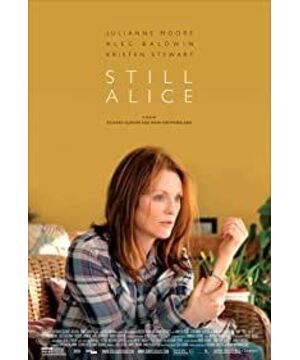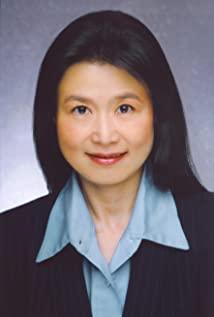Both movies talk about Alzheimer's disease, each with its own characteristics. The mother in "Notes of My Mother" (the movie was renamed "Remember My Mother") is an oriental woman with little culture, who has experienced wars and misfortunes in her family and country; and "Alice" is a happy family, life A happy and successful psychology professor and an internationally renowned Western linguist. The illness of "Mother" gradually emerged and gradually attracted the attention of relatives. Apart from being more concerned by relatives, there is no treatment plot in the film; while "Alice" unfortunately suffered from this disease at the age of 50, an international academic During the meeting, she suddenly forgot a word she would never forget when she was speaking, and then got lost on the most familiar campus while running, so she went to the doctor and did a series of tests, and was soon diagnosed with early stage of Alzheimer's disease. She and her husband called a family meeting to announce the sad news to their children. "Mother" is an elderly patient. Her condition is developing slowly. The eraser erases her memories little by little. Her bizarre behavior is manifested in getting up in the middle of the night and running away from home; while "Alice", who loses her memory step by step, However, using videos, videos and small notes, he took his laptop with him, reminding him of the location of the items and what he should do, so as not to affect his relatives as much as possible. After "Mother" fell ill, she seemed to be giggling, but "Alice" would cry bitterly in her husband's arms even though she held on, and even prepared enough sleeping pills for herself. At the end of the movie, "Mother" closed her eyes peacefully after unraveling her misunderstanding with her son; while "Alice" had to continue to struggle with this disease.
However, these two patients have a big family full of love and affection, and they have not been rejected from beginning to end, which is very enviable. In addition, there is a concept that runs through both films: Alzheimer's patients, their memories are erased, but they are still selective. Especially the mother, she forgot her husband, but she couldn't forget the beautiful young man next door who died a long time ago - her first love, some feelings were suppressed all her life, but she was selectively exposed because of illness! The son left him on an isolated island because his mother went to Taiwan back then. He was very concerned and used writing to express his inner resentment; but the mother recited a little poem that the son wrote to her back then even though she could not recognize her son. . It turned out that the so-called "abandonment" was to continue the bloodline, but she didn't say anything about it, in order to keep the writer's son's motivation for writing forever! Alice finally watched the play "Angel in America" starring "Rebel Girl", and the line she remembered was "love". It turns out that love cannot be forgotten, and it will never be forgotten. Still Alice, Alice—still.
It is mistaken to think that those with high IQ and diligent use of the brain are not prone to this disease, but it is not true. Not to mention Alice, President Reagan, Margaret Thatcher, and Professor Kao Kun, who won the Nobel Prize in Physics, all have this difficulty; and this disease also tends to be "younger", isn't Alice an improper age? The doctor said that the disease is due to the presence of amyloid in the brain, and it is highly heritable and has a great relationship with genes. Teacher Wei Smile is right, Alzheimer's disease is a hundred times more terrifying than cancer. If you have cancer, you can justifiably get sympathy, but this disease is mostly despised, ridiculed, and disliked, and family members can't hold their heads up. What a terrifying meaning and emotional overtone to what we used to call "Alzheimer's" for so long!
Many friends are very reluctant to touch on topics such as illness, old age, and death, and even resent it. My interest in these topics is undiminished, and I enjoy reading the appropriate articles and books. Watching too much didn't affect my mood. This may be because I have a strong curiosity about some mysterious fields, like listening to ghost stories when I was a child, and still want to hear it with my ears covered. More importantly, those topics are getting closer and closer. Because of the prolongation of lifespan, these problems are even more unavoidable for you. Instead of being ignorant, rather than thinking about it, it is better to touch it boldly, think in multiple dimensions, understand "living", and how can "death" be confused? After I figured it out, I figured it out, and I figured it out, as long as I can control my thinking, my instinctive "fear" will be much lessened.
I read two articles on the WeChat subscription account today, one is Mr. Liang Yuchun's old article "The View of Human Death", and the other is "How Should We Face Disease and Death?" written by Dr. Xiao Danhua ", they all said that people often attach great importance to "life", but deliberately ignore old age, illness, and especially death, which is very one-sided. And it would be even better if we could have empathy with these issues through some excellent literary and artistic works.
By the way, Julian Moore, the star of "Still Alice", is the "Grand Slam" queen of the three major film festivals in Berlin, Cannes and Venice, and won the best actress at this year's Oscar for this film. laurel.
View more about Still Alice reviews










